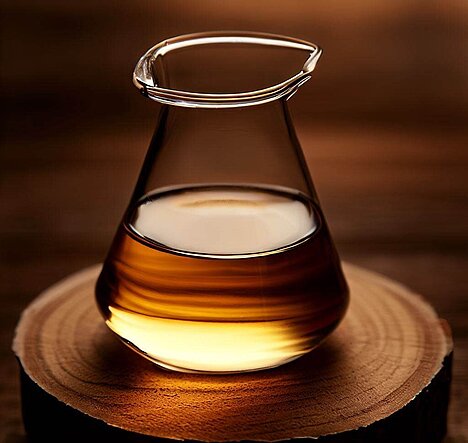Penoxyethanol

Penoxyethanol is an organic compound that is used as a preservative in many cosmetic products, but also in vaccines, wet wipes and lubricants. It has a bactericidal effect, i.e. it kills bacteria and thus prevents the products from spoiling. But how does penoxyethanol affect dogs and is it harmful or safe for them? In this article, you can find out more about this substance and its advantages and disadvantages for your four-legged friend.
What is penoxyethanol?
Penoxyethanol is an ether of phenol with ethylene glycol, i.e. a compound consisting of an aromatic ring and an alcohol group. It is a colorless, oily liquid with a faint, rose-like odor. It is slightly soluble in water, but highly soluble in organic solvents such as alcohol or oil.
Penoxyethanol is produced by the reaction of phenol with ethylene oxide. It has a broad spectrum of antimicrobial activity against both gram-negative and gram-positive bacteria and yeasts, microorganisms that can cause disease or spoilage. However, it has little effect on the natural skin flora, i.e. the beneficial bacteria that live on the skin.
Penoxyethanol is used as a preservative in the cosmetics industry to ensure the shelf life and safety of products. The German Cosmetics Ordinance allows a concentration of up to 1% in cosmetic products. Penoxyethanol is also used as a substitute for sodium azide in biological buffer solutions, as it is less toxic and does not react with copper or lead. It is also used as a narcotic for fish, which means that it can be used to sedate, stun or euthanize fish, depending on the dosage. It is also used as a preservative for vaccines in the pharmaceutical industry.
Benefits of penoxyethanol for dogs
Penoxyethanol has several benefits for dogs, mainly related to its antimicrobial effect. For example, it can help prevent or treat infections caused by bacteria or yeasts. This can be useful for skin problems such as dermatitis or ear infections.
Penoxyethanol can also help make the products you use for your dog last longer and be safer. This is especially true for products with a high water content, such as shampoos, conditioners or wet wipes. If these products are not sufficiently preserved, they can quickly become germy and lead to skin irritation or allergic reactions.
Disadvantages of penoxyethanol for dogs
Penoxyethanol also has some disadvantages for dogs, which are mainly related to its toxicity. For example, an overdose can lead to symptoms of poisoning, which can manifest as vomiting, diarrhea, breathing difficulties or convulsions. This can happen, for example, if your dog licks or swallows a product containing penoxyethanol.
Penoxyethanol can also lead to allergic reactions, which can manifest as a skin rash, itching or swelling. This can happen, for example, if your dog has a hypersensitivity to penoxyethanol or if it comes into contact with a product containing penoxyethanol too often or for too long.
Penoxyethanol can also pollute the environment if it gets into water. This can happen, for example, if you rinse out your dog shampoo outdoors or if you throw away wet wipes containing penoxyethanol. Penoxyethanol can degrade water quality and harm aquatic organisms. In the South Sea state of Palau, penoxyethanol has been banned in sunscreens to protect coral reefs since January 2020.
Penoxyethanol is an organic compound that is used as a preservative in many products. It has a bactericidal effect that can prevent or treat infections, but can also lead to poisoning or allergies. It also has an impact on the environment that should not be neglected. If you use products with penoxyethanol for your dog, you should therefore take a few precautions:
- Only use products that contain a concentration of up to 1% penoxyethanol.
- Avoid contact with your dog's eyes or mucous membranes.
- Rinse the product thoroughly from your dog's coat.
- Do not allow your dog to lick or swallow the product.
- Monitor your dog for possible side effects and consult a vet if in doubt.
- Dispose of the product in an environmentally friendly manner and avoid discharging it into water.
If you notice any signs of hypersensitivity or poisoning in your dog, you should see your vet immediately. We are not a substitute for a vet, but we try to be as accurate as possible. Every dog reacts differently and we recommend you get a second opinion or consult your vet if in doubt.
Stay healthy and take good care of your four-legged friend!😊